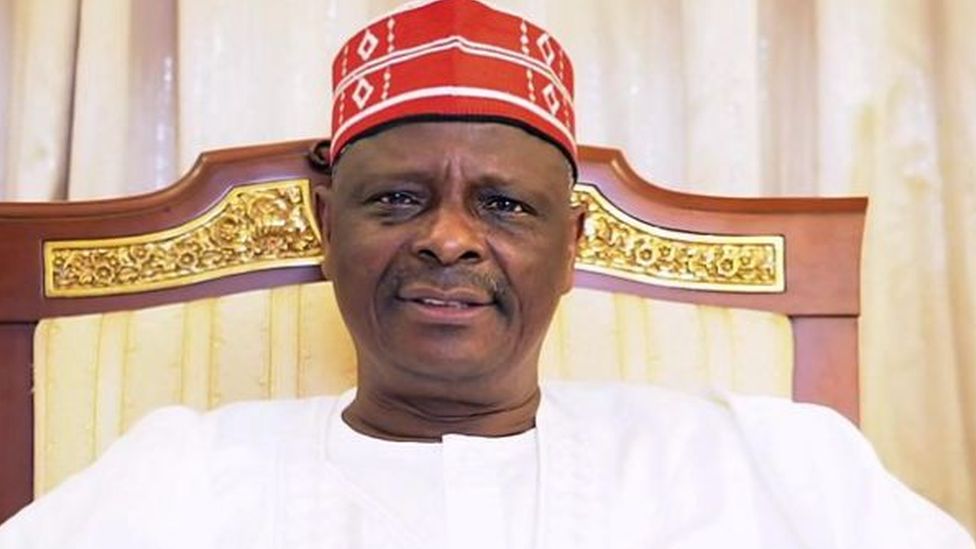The political landscape of Kano State is heating up as the All Progressives Congress (APC) and former Governor Rabiu Kwankwaso engage in a war of words, setting the stage for a potentially explosive showdown in the 2027 elections. Kwankwaso, a prominent political figure in the state, recently declared his intention to significantly diminish the APC’s voting power in the upcoming elections, a claim the APC has vehemently dismissed as delusional and indicative of Kwankwaso’s waning political influence. This public exchange marks the latest chapter in a protracted political rivalry, with both sides staking their claim to the hearts and minds of Kano’s electorate.
The APC, through its state chairman Abdullahi Abbas, launched a scathing attack on Kwankwaso, labeling him a “political refugee” desperately clinging to the current Governor, Abba Yusuf, for relevance. Abbas questioned Kwankwaso’s political standing, pointing to his alleged expulsion from the New Nigeria Peoples Party (NNPP) and his history of party-hopping. The APC chairman argued that Kwankwaso’s boastful pronouncements were merely wishful thinking, disconnected from the reality of the APC’s strong grassroots support. He further accused Kwankwaso of benefiting from manipulated votes in the 2023 elections, a tactic he warned would not be tolerated in future contests. The APC expressed confidence in its ability to reclaim the governorship in 2027 and “liberate” the people from what they perceive as Kwankwaso’s undue influence.
Kwankwaso’s assertions, made during a meeting with stakeholders in Tsanyawa Local Government Area, centered on his perceived political prowess and the effectiveness of his campaign strategies. He claimed responsibility for marginalizing the Peoples Democratic Party (PDP) in the 2023 elections, reducing their votes to a mere 15,000. He further boasted of achieving this feat despite the NNPP’s relative newness and a late start to their campaign. Projecting this perceived success into the future, Kwankwaso vowed to replicate the strategy against the APC, aiming to reduce their votes to below 15,000 in 2027. He also claimed to have garnered support from former councillors and senior special advisers who served under the previous APC administration led by Abdullahi Ganduje, further bolstering his confidence in his political strength.
The APC’s response to Kwankwaso’s pronouncements was swift and dismissive. Abbas characterized Kwankwaso’s claims as “laughable” and indicative of a detachment from reality. He challenged Kwankwaso to focus on regaining his membership in the NNPP, from which he was reportedly ousted, rather than engaging in what the APC perceives as empty rhetoric. The APC chairman portrayed Kwankwaso as a political wanderer, abandoned by successive parties due to his alleged “cluelessness and self-centeredness.” He reiterated the APC’s commitment to serving the people of Kano and expressed confidence in their ability to overcome Kwankwaso’s perceived influence, which he characterized as emanating from his “castle” on Miller Road.
The exchange between the APC and Kwankwaso highlights the deep-seated political rivalry that permeates Kano State politics. The accusations and counter-accusations paint a picture of a complex political landscape characterized by shifting alliances, personal ambitions, and a struggle for dominance. The APC’s characterization of Kwankwaso as a political outsider, coupled with its accusations of manipulated votes, reflects a concerted effort to discredit his claims and undermine his political standing. Kwankwaso’s assertions, on the other hand, reflect his confidence in his political strategy and his belief in his ability to mobilize support against the APC.
The 2027 elections in Kano State promise to be a fiercely contested battleground. The current war of words between the APC and Kwankwaso serves as a prelude to what is likely to be a highly charged campaign season. The outcome of this political showdown will significantly shape the future political landscape of Kano State and will be a key indicator of the relative strengths of the competing political forces. The electorate in Kano State will ultimately decide which narrative resonates most strongly with them – the APC’s portrayal of Kwankwaso as a spent force or Kwankwaso’s projection of himself as a political heavyweight capable of delivering electoral victories. The coming years will undoubtedly be marked by intense political maneuvering and strategic positioning as both sides vie for the upper hand in this high-stakes political game.














